


Framed or unframed, desk size to sofa size, printed by us in Arizona and Alabama since 2007. Explore now.
Shorpy is funded by you. Patreon contributors get an ad-free experience.
Learn more.

- Freezing haze
- Corrections (for those who care)
- C&NW at Nelson
- Fallen Flags
- A dangerous job made worse
- Water Stop
- Passenger trains have right of way over freights?
- Coal
- Never ceases to amaze me.
- Still chuggin' (in model form)
- Great shot
- Westerly Breeze
- For the men, a trapeze
- Tickled
- Sense of loneliness ...
- 2 cents
- Charm City
- What an Outrage
- Brighton Park
- Catenary Supports
- Just a Little Before I was Born
- Afternoon normal
- The Flat Iron Cafe survives
- Aging in Place
- Raise your hand
- Good and Bad
- Oh, the 70's
- Nooooooi
- The aluminum tubing
- I need to reconsider
Print Emporium
The Witts: 1911
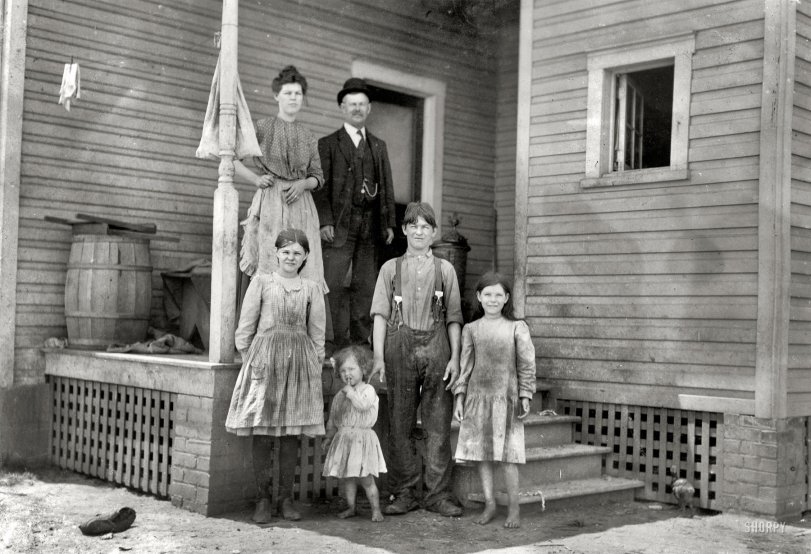
May 1911. Roanoke, Va. "Dependent Parents. R.L. Witt. He is apparently working on the railroad, but his three oldest children, here work in the Roanoke Cotton Mills. Mamie is only 12 years old and earns very little. Home is very poorly kept. Mother would not be in the photo." Photo by Lewis Wickes Hine. View full size.
The Witts: 1911
This is Joe Manning, of the Lewis Hine Project. The girl on the right was Eva Witt. The father was named Robert L. Witt. I talked to the son of Russell Witt, one of the boys in this family who was not pictured. He was very surprised about the Hine photos (there are four of this family, three of them with just Mamie in them). He did not know what happened to Mamie or Eva, but he knows someone in the family who is working on the family tree. He will see if he can get more information from that person.
What does it say about us?
We all look at a 100-year-old photo of a family on the porch of their home. All the people in it are long dead.
Yet it's possible for us to still pass judgment on them: "They were lazy!" "They never heard of a bar of soap?"
Many of us have ancestors who also grew up extremely poor, hard-working, and needy, in both small towns and cities across America. That we are all here at all is a tribute to their determination and success. Yet just as many families were destroyed by sheer bad luck - by eminent domain, by sudden accidental death, by fire, flood or influenza.
This family is gone. Is there harm in feeling sympathy for them, even if their clothes are dirty and their house is slovenly? We cannot know the troubles they bore - whether the mother never recovered after the birth of her youngest less than four years ago, whether the father was a gambler, a tippler, or a wastrel, or whether the children had any supervision or guidance. Perhaps there is even some benefit to imagining them compassionately. It may help us regard our own living neighbors with more kindness.
Pick Me, Pick Me!
Looks like the littlest one is digging for gold, there! Thankfully, kids never change. All of us probably have picture of ourselves or one of our siblings with a finger up the nose!
It's back!
Yet another random single shoe in the yard.
Out of the picture
The statement "Mother would not be in the photo" might be a clue as to why this family is so dirty. Maybe she was too depressed or sick to do anything.
Clean Getaway
My mother, born in 1919, had 9 brothers. Everyone worked on the farm and most had side jobs as well. Spare time was an unknown commodity. Yet my grandmother managed to keep them all CLEAN! She worked like a mule, but the key word there is "work." There was very little money when I was growing up but my mom would have stole a bar of soap, found a puddle and a rock, and cleaned that mess up. And she was no thief, but you get my point. The first thing I see when I look at this picture is laziness, not poverty.
[I'll bet your grandmother didn't do laundry with a bar of soap and a puddle. Laundry was generally a once-a-week affair that involved fetching water from a pump or well, boiling it over a fire or stove, a lot of scrubbing, then drying and ironing. If you have but one or two changes of clothes, work in a knitting mill and have a dirt yard and no plumbing, this is how you look before washday rolls around. - Dave]
No, she didn't do our laundry in a puddle. She pressed clothes in a dry cleaners six days a week so she was busy with other peoples wearables. But your not taking into consideration the unkempt porch, dirty hair and the lone shoe. Other folks worked in dirty jobs as many hours and didn't live this way Dave. That was all I'm saying.
[I suspect that if we traveled back a hundred years -- or looked at more of Lewis Hine's photos -- we might come to a different conclusion. - Dave]
Mamie Witt
Here we see another shot of Mamie working in that cotton mill.
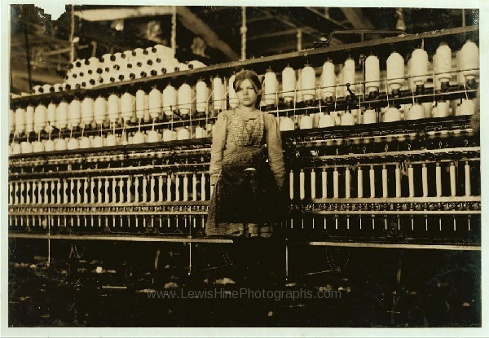
Big Lick
My great-grandfather might have worked right alongside the man pictured -- he was born in Roanoke in the 1880s and began working for the railroad shortly before this photo was made.
It's quite probable that this house is still standing somewhere in South Roanoke, and I feel I may have even passed by it dozens of times in my life.
BOTH Washboards Broken?
Perhaps both washboards on top of the wooden barrel are out of service, considering all of the moving parts they have. My mother would have been saddened by this picture stating that soap and water are cheap. She grew up on a dry land cotton farm in the Texas panhandle with nothing. Water from a cistern, no power etc. Her childhood friend lived on the neighboring farm in a dirt floor shack. Even the dirt floor was always swept clean and hard as concrete, the children were clean, dresses and bonnets were clean etc. Every time I see a similar situation as above I always think of my mother, her stories and her wanting to just grab kids like these and scrub 'em good.
Before there were iPads
This picture is a classic example of the "old days" when families struggled to earn a living and the children were expected to contribute. Not a lot of playtime for the kids. This family displays the simple dignity of folks who endure life's struggle without being self-conscious over their condition or place in society.
My paternal grandmother would have been about the age of the girl on the right. She knew hard work all her life.
This website is a reminder of our past - with its stately buildings and its stately families.
I hope they were able to afford shoes later in life and were able to enjoy the marvels of Maytag.
Clarence Witt
The boy, based on the 1910 census is Clarence, born 1896. By 1920 he is still living in Roanoke, and is married to Creasey and they have a 1 year old child. He works for a hardware company and can read and wright. In 1930 he is still in Roanoke and still working for a hardware company and his wife, now called Minnie, and he have 6 children, Robert, Russell, Grace, Richard, Howard and Ada. The oldest four children are all in school. That is the story of America during the immigration period. We look at those poor kids working in factories and farms and worry. But in large part, they grew up and lived better than their parents, and their kids better than them.
Now this is poor
And people today think they have it tough. I can't imagine what it would be like to grow up in a family as hard up as these people. Hard working and still just making ends meet. Barely!!
If R.L. remarried
would the siblings be half-Witts?






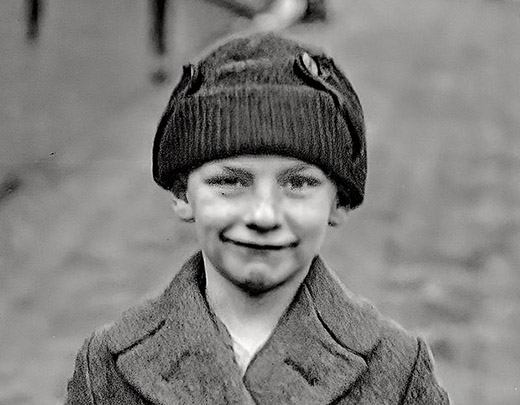
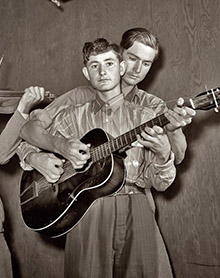
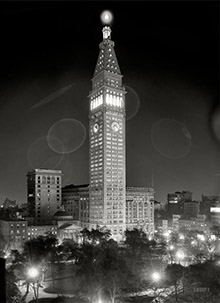
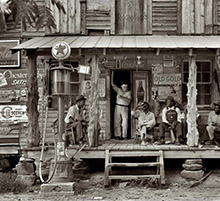
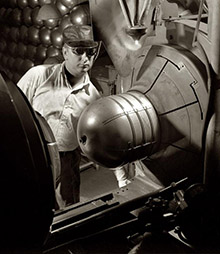
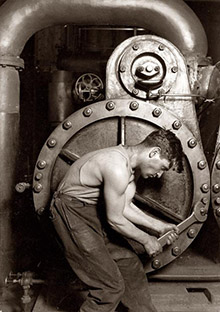

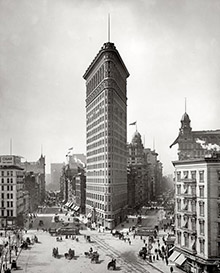



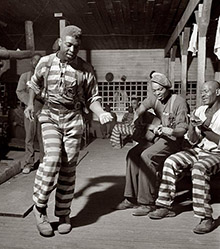

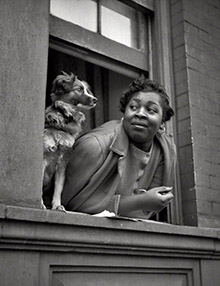

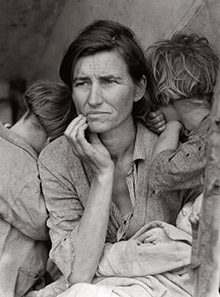

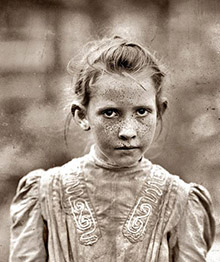
On Shorpy:
Today’s Top 5